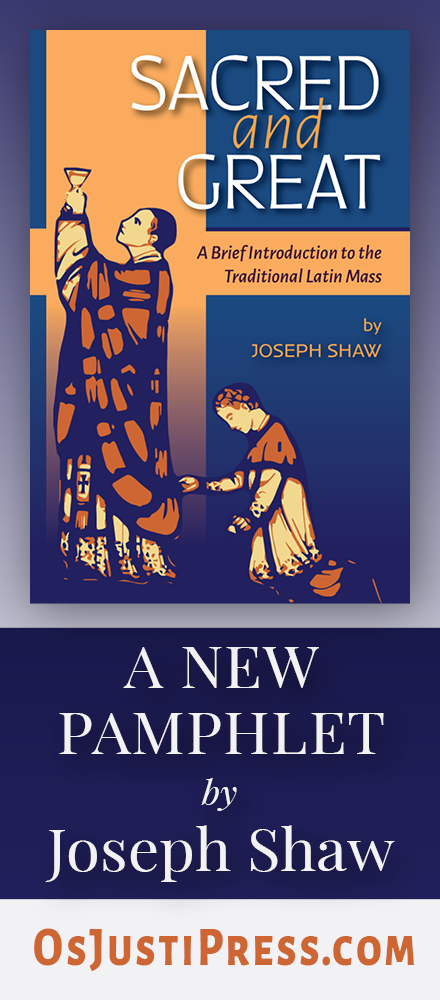In the last week, I've spoken before two groups of Catholics about sacred music and taken questions and observed on their faces looks of confusion and enlightenment (I leave aside the case of the heckler who exhibited red-faced anger). From this experience, I again learned the lesson that I somehow never fully grasp: it is not possible to underestimate people's level of knowledge of the basic facts of liturgy and music.
For decades, Catholic music publishers have been cranking out liturgy workbooks, hymnbooks, guidebooks, book books, and sending well-meaning but woefully uneducated workshop leaders to thousands of parishes, while well-heeled organizations have held hundreds of lucrative national conferences designed to somehow get Catholic musicians up to speed.
Incredibly, the results of all this "education" – which has had no unified theme and has been more about marketing expensive, copyrighted music than actually doing what the Church asks – has been to scramble the brains of Catholic musicians around the country to the point that most have not the slightest clue what they are seeking to do. Lots of money has changed hands but we are further away from understanding than ever before.
So here is my list of the top ten musical unknowns of our day:
- The music of the Mass is not of our choosing; it is not a matter of taste; it is not a glossy layer on top of a liturgy. Liturgical music is embedded within the structure of the liturgy itself: theologically, melodically, and historically.
- Hymns are not part of the structure of Mass. Nothing in the Mass says: it is now time to sing a hymn of your choice. Hymns are permitted as replacements for what should be sung but only with reservations.
- The sung parts of the Mass can be divided into three parts: the ordinary chants (which are stable from week to week), the proper chants (which change according the day), and the priests parts that include sung dialogues with the people.
- The music of for the Mass is found in three books: the Kyriale (for the people), the Graduale (for the schola), and the Missale (for the priest).
- To advocate Gregorian chant is not merely to favor Latin hymns over English ones, because chant hymns make up only a small portion of chant repertoire. It is to favor a sung Mass over a spoken one, and to favor the music of the Mass itself against substitutes.
- Cognitive pedagogy is not the primary purpose of music, so, no, it is not important that all people gathered always and immediately "understand the words."
- The music of Mass does not require an organist, pianist, guitar player, bongos, or microphones. It requires only the human voice, which is the primary liturgical instrument.
- The Second Vatican Council was the first ecumenical council to decisively declare that chant has primacy of place: "Ecclesia cantum gregorianum agnoscit ut liturgiae romanae proprium: qui ideo in actionibus liturgicis, ceteris paribus, principem locum obtineat." (And ceteris paribus does not mean: unless you don't like it. It means even if chant cannot be sung because of poor skills or lack of resources, or whatever, it still remains an ideal.)
- There is no contradiction between chant and participation. Vatican II hoped to see that vernacular hymnody would decrease and the sung Mass would increase. Full, conscience, active participation in the Mass means: it is up to the people to do their part to sing the parts of the Mass that belong to the people.
- The first piece of papal legislation concerning music appeared in 95AD, by Pope St. Clement. It forbid profane music in liturgy and emphasized that Church is the place for holy music. All successive legislation has been a variation on that theme.
It's going to take more than one-hour lectures to undo all the misinformation that has been spread for decades, and the publishers of these popular liturgy guides need an education more than anyone else. But let's be clear what we are talking about here. The paradigm of sacred music amounts to a complete overhaul of what most Catholic musicians think belongs in Mass. And the first step to education is to have an educable spirit.
Will musicians and publishers that have been working for decades in a spurious paradigm—the billions involved do not confer liturgical legitimacy—be willing to rethink matters?




















